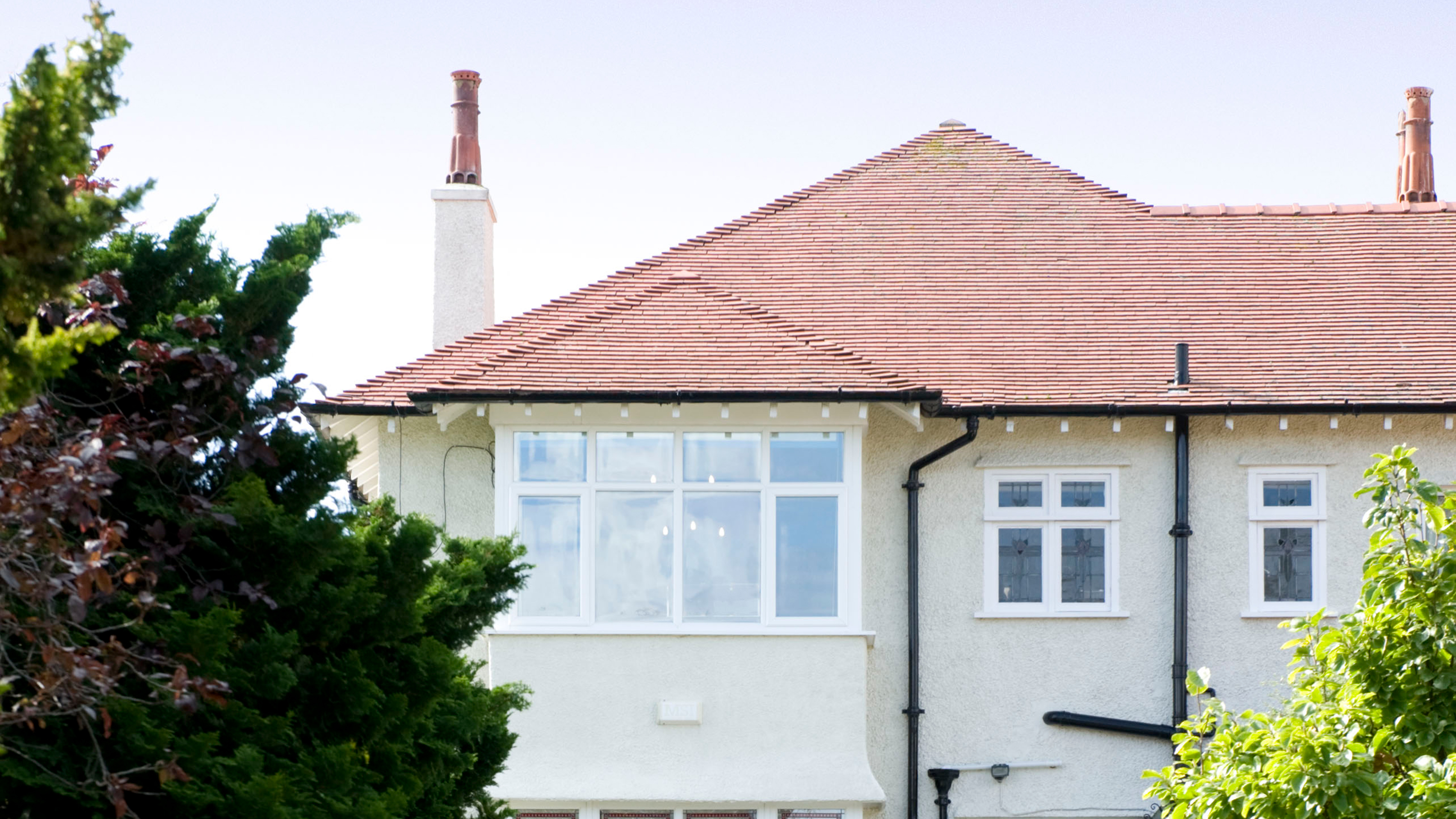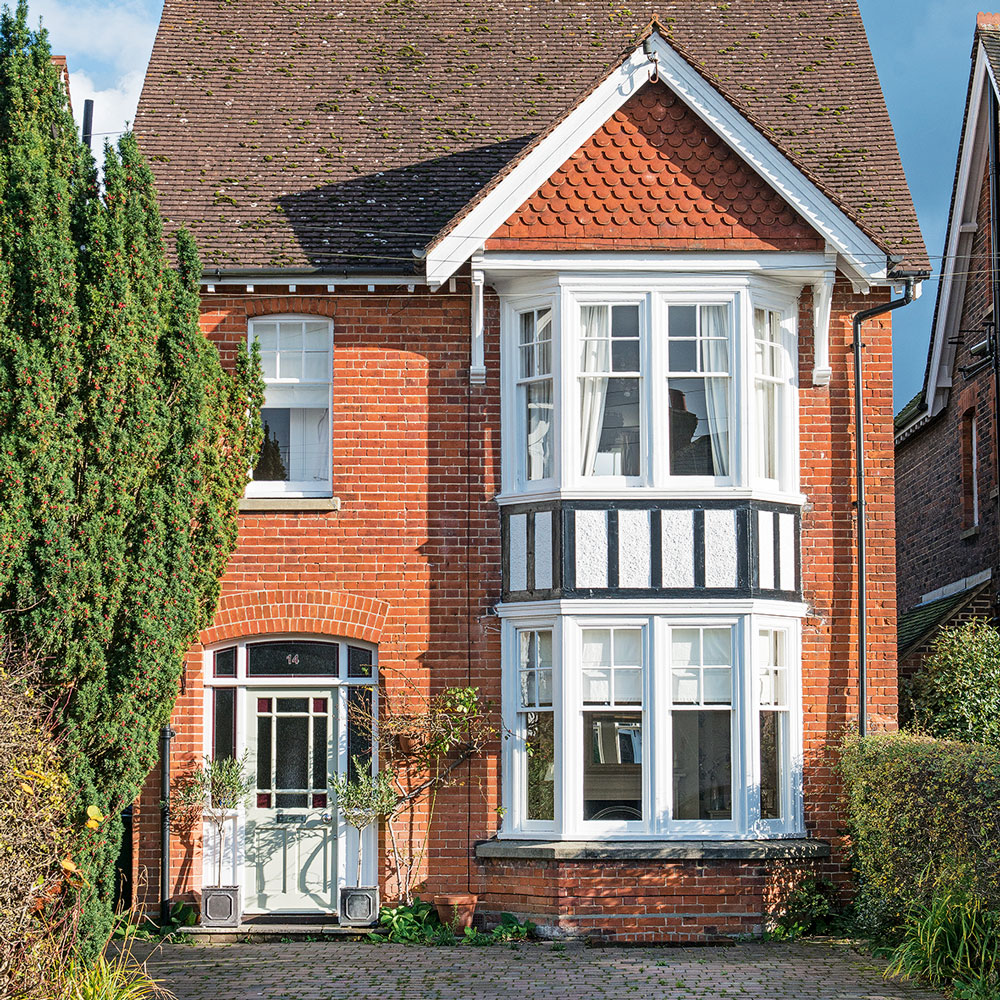Insurance when buying a house: what do you need to have in place and when?
Your home is likely to be the most expensive purchase you’ll ever make, which is why it’s crucial to get the right insurance when buying a house

Buying a property can be an exciting, yet stressful time, with plenty on your to-do list. But in the chaos it’s important that you don’t forget to get the right insurance when buying a house.
There are a number of different home insurance types to consider and you’ll need them at different stages of the buying process. We explain all you need to know.
What insurance do you need when buying a house?
The first type of insurance to consider is home insurance. This broadly falls into two categories - contents insurance and buildings insurance. Cover types are sold separately, but it’s usually cheaper and easier to buy a combined policy.
There’s no legal requirement to purchase so you don't need home insurance, but if you are buying a house with a mortgage, the lender will usually require you to have buildings insurance to protect their investment.
‘Appropriate buildings insurance is required to be in place by the time contracts are exchanged,’ explains Sarah Smith at LV General Insurance. ‘Exchange is the point at which buyers legally commit to purchasing the property and accept responsibility for insuring the property.'
Besides it being a compulsory condition of getting a mortgage, taking out buildings insurance ensures the costs of repairing or rebuilding the structure of your home will be covered if it is damaged or destroyed. ‘Cover includes outbuildings, fixtures and fittings, and garages within the boundaries of the land,’ says Sarah.
Contents insurance won’t be a condition of getting a mortgage, but it’s still worth having as it enables you to make a claim if any of your belongings in the home are damaged, lost or stolen. It’s best to get this in place for completion of the property, but you can buy it at any time.
Get the Ideal Home Newsletter
Sign up to our newsletter for style and decor inspiration, house makeovers, project advice and more.

Getting the right home insurance cover
When buying contents insurance, it’s crucial that you have the right level of cover in place. If you underestimate how much your belongings are worth, you may not receive a full payout if you later make a claim.
‘Watch out for the 'average clause’ in contents insurance' warns Dan Copley, consumer expert at Zoopla. 'Because this could ultimately affect the pay you receive when you make a claim. E.g if you have £40,000 worth of contents but only insure for £30,000, you've only bought 75% of the cover you need. And will only receive 75% of a claim.’
If you have high-value items such as bicycles and jewellery, these may also need to be listed separately on your policy.
Some contents insurance policies will also provide cover for your belongings while they are in transit to your new home. This stands as long as cover is in place before the move. If your policy does not include this as standard, you may be able to pay to add it.
Another watch out is if you are carrying out home renovations. If you’re buying a property but waiting to move in, check the terms and conditions of your policy to see if it covers unoccupied properties. ‘Most insurers won’t cover for loss or damage if left for more than 60 days in a row,’ says Sarah from LV.
Depending on the work being carried out, you may benefit from taking out separate renovation insurance.
What other insurances might you want to consider when buying a house?
Home buyer protection insurance protects you in the event your house purchase falls through. It and can help you claim back costs such as conveyancing fees, valuation fees and mortgage fees.
Cover usually lasts between 120 and 180 days and should be taken out once you’ve had an offer accepted on a house, but before a survey has been carried out. It’s also worth considering income protection and life insurance.

‘Income protection provides a replacement income in the eventuality that you cannot work due to illnesses or injury. This is vital to allowing you to continue to pay bills including the mortgage,’ explains Louise Colley from Zurich Insurance UK.
Life insurance pays out a lump sum to your dependants if you die within the term of the policy. Critical illness cover can also be added, to pay out in the event of serious illness.
‘The amount paid is decided by the customer and is often based on any outstanding mortgage liability,’ adds Louise. ‘It means that should the worst happen, any dependants left behind won’t be forced to sell the family home in the absence of income or savings.’
-
 5 signs you’ve taken decluttering too far — and how you can pull yourself back, according to organisation experts
5 signs you’ve taken decluttering too far — and how you can pull yourself back, according to organisation expertsYou might have to start resisting the urge to purge
By Lauren Bradbury
-
 What is the Party Wall Act 3m rule and is it something you should be worried about? This is what the experts say
What is the Party Wall Act 3m rule and is it something you should be worried about? This is what the experts sayDon't get caught off-guard by the Party Wall Act 3m rule — our expert guide is a must-read
By Natasha Brinsmead
-
 Shoppers can’t get enough of The Range’s lemon tree, but I’ve found an even cheaper bestseller at B&Q - it’s perfect for a Mediterranean look
Shoppers can’t get enough of The Range’s lemon tree, but I’ve found an even cheaper bestseller at B&Q - it’s perfect for a Mediterranean lookWelcome the summer with this glorious fruit tree
By Kezia Reynolds
-
 You can claim back over £300 a year from HMRC if you work from home - here’s how to check if you’re eligible
You can claim back over £300 a year from HMRC if you work from home - here’s how to check if you’re eligibleWhen it comes to saving, every little helps
By Kezia Reynolds
-
 Experts have revealed the best day to renew your home insurance policy - you’ll want to do it sooner rather than later
Experts have revealed the best day to renew your home insurance policy - you’ll want to do it sooner rather than laterDon't leave this task at the bottom of your to do list
By Kezia Reynolds
-
 Is a variable rate mortgage ever a good idea? Experts weigh in
Is a variable rate mortgage ever a good idea? Experts weigh inOur money expert explains what a variable rate mortgage is, who they can be good for, and the pros and cons of this kind of mortgage
By Samantha Partington
-
 I’m a first-time buyer, what are my chances of getting a mortgage right now?
I’m a first-time buyer, what are my chances of getting a mortgage right now?And what you can do to increase your odds
By Rachel Wait
-
 Should you ever pay above the asking price for a home?
Should you ever pay above the asking price for a home?Our money expert explains whether you should ever pay over the asking price for a home, especially if house prices fall as predicted
By Samantha Partington
-
 Should I fix my mortgage and how long should I fix for?
Should I fix my mortgage and how long should I fix for?We speak to the experts to find out whether you should fix your mortgage and how long for as well as the impact further interest changes could have on your decision
By Samantha Partington
-
 We put your mortgage questions to two leading experts, here's what they said
We put your mortgage questions to two leading experts, here's what they saidAs mortgage panic continues, we've answered the most common questions - from when mortgage rates will come down, to when you actually have to pay stamp duty
By Samantha Partington
-
 'My mortgage is set to skyrocket - what should I do?' 5 potential solutions from a money expert
'My mortgage is set to skyrocket - what should I do?' 5 potential solutions from a money expertIf you're facing higher mortgage costs, our money expert explains various courses of action you could take to ease the pressure
By Samantha Partington